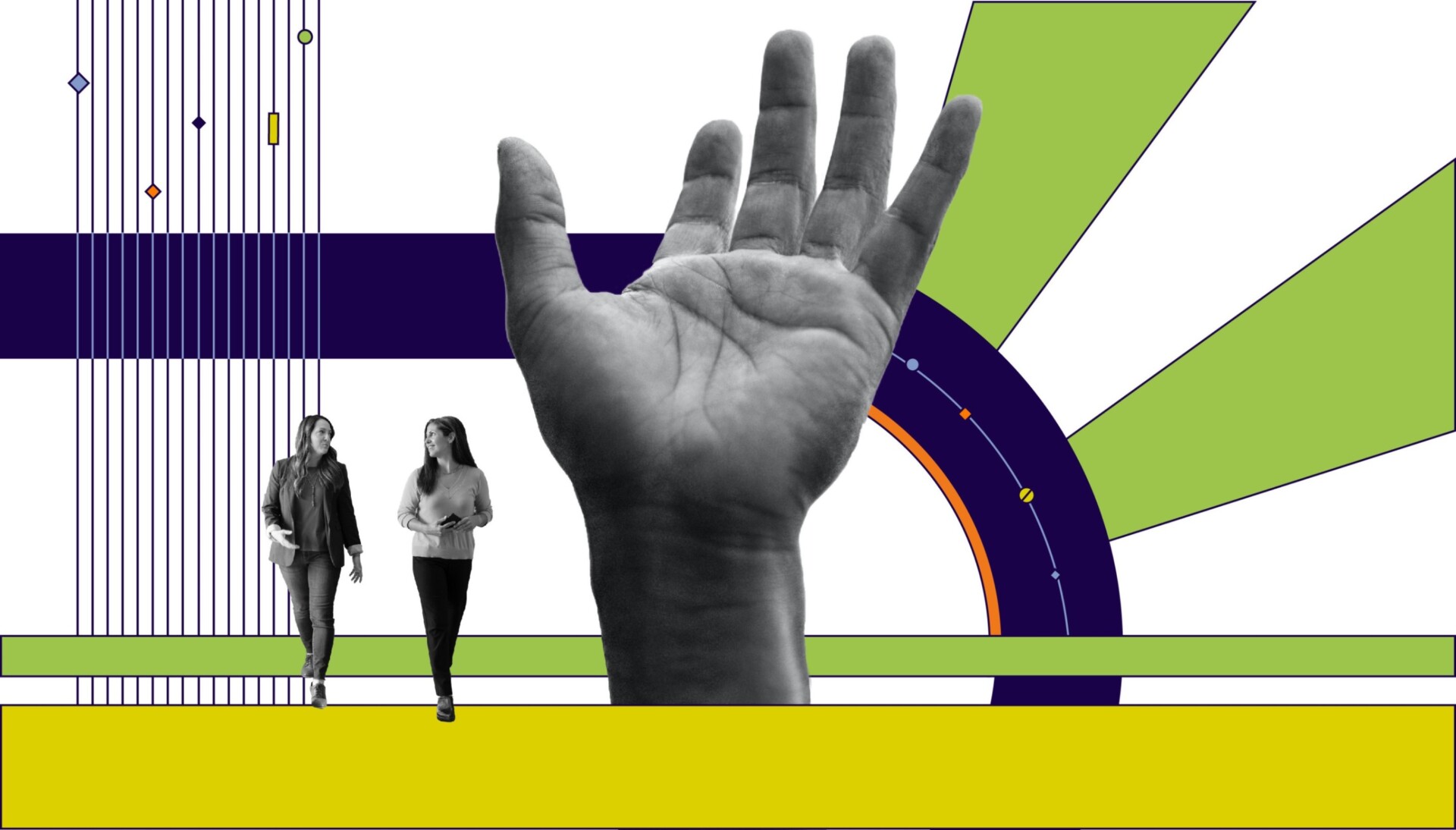What does the skills gap look like across the generations and how can organisations support employees at different stages of their careers through development and training?

As our economies and businesses recover from the Covid-19 pandemic, the pace of digital upskilling required by the fourth industrial revolution is only going to get faster.
LinkedIn data projects there will be nearly 150 million new technology jobs created over the next five years, ranging from software development to IT support. For many businesses, there is an assumption that these positions can partly be filled by tech-savvy younger employees, who can then share knowledge with older employees. But are the next generation really ready to meet the digital skills demanded by the jobs of the future?
Salesforce’s Global Digital Skills Index surveyed 23,000 workers across 19 countries to determine their digital skills readiness. It found that more than three quarters (76%) of respondents didn’t feel equipped to operate in a digital-first world – and that while older employees were more likely to lack appropriate digital skills, many younger people also felt ill-equipped for the challenges of the future of work.
Digital native, not digital worker
Just 31% of Gen Z respondents to the Salesforce survey said they felt very equipped for a digital-first job right now, with few reporting confidence in having more advanced digital skills like coding (20%), data encryption and cybersecurity (18%) and AI (7%). However, Gen Zers were more likely to be preparing themselves for future challenges, with 35% currently training or learning new digital skills.
This was despite nearly two-thirds (64%) of Gen Zers saying they had advanced social media skills, suggesting that being digital native doesn’t necessarily translate into having appropriate digital skills for the workplace.
“Unfortunately, very few young people have a clear picture about what a technology career looks like. “Young people need to be able to connect and interact with role models from their chosen industry,” says Sarah Mehrali, marketing executive at social enterprise Stemettes, which encourages young women into STEM careers.
At the other end of the age scale, just 17% of baby boomers (those born 1946–1964) reported being very equipped for digital-first employment, with a worryingly low 12% engaging in digital skills training. Gen X (those born 1965–1980) didn’t fare much better, with only 22% being equipped with the necessary skills and the same figure participating in training.
In fact, just 17% of all survey respondents consider themselves advanced in workplace digital skills, with half considering themselves beginners. So how can organisations better support all employees to grow their digital capability?
“A flatter hierarchy would be a good place to start. Businesses need to incorporate new starters into their gap analysis processes to allow room for not only fresh ideas but also a fresh pair of eyes. Organisations should be open to new social trends and the latest technical tools in order to integrate all skillsets on offer from employees,” says Mehrali.
Growing your digital talent pool
Antonio Weiss is a senior partner at public services digital transformation consultancy The PSC and author of The Practical Guide to Digital Transformation. He believes that it’s vital that businesses avoid ‘lazy assumptions’ about digital capabilities.
“Digital capability varies by region, by income and by overall literacy. It’s genuinely a mixed picture and you risk alienating and upsetting staff by making assumptions about them. Asking employees for their digital confidence levels before starting training is good practice,” says Weiss.
“Be clear about the digital skills you need and require. Set standards and expectations for employees. Provide them with the time, resources and support to build these capabilities. And most importantly, don’t neglect the wider skills of transformation – people and change management, teamwork, and rigour. Without these, you can have all the digital skills in the world but will still fail,” he adds.
Be clear about the digital skills you need and require. Set standards and expectations for employees
The truth is there is no single magic formula to success. Instead, a digital-first world of work gives businesses the chance to rethink what truly agile teams can look like. It’s also about building a culture of continuous learning and adaptability, allowing employees to evolve their skills as technology continues to change how we work.
Empower employees
This requires deliberate investment in upskilling, training and reinventing existing employees. The good news is that many employees are already on board with developing news skills. The Global Digital Skills Index report suggests that 82% of employees are planning on learning new skills to grow their careers.
Consider the potential of your talent pool, rather than what they already do. Focus on employees who already have digital capabilities and encourage them to teach their colleagues. Bring in external talent with new skills and encourage them to upskill existing employees.
Finally, give your employees a say in what the future of your business looks like. All generations of employees – whether Gen Z, near-retirees or everybody in between – need a sense of belonging and purpose. Providing digital skills training is about ensuring that all employees in a multi-generational workforce have the ability to develop, design and do well in the future of work.
What does the skills gap look like across the generations and how can organisations support employees at different stages of their careers through development and training?

As our economies and businesses recover from the Covid-19 pandemic, the pace of digital upskilling required by the fourth industrial revolution is only going to get faster.
LinkedIn data projects there will be nearly 150 million new technology jobs created over the next five years, ranging from software development to IT support. For many businesses, there is an assumption that these positions can partly be filled by tech-savvy younger employees, who can then share knowledge with older employees. But are the next generation really ready to meet the digital skills demanded by the jobs of the future?
